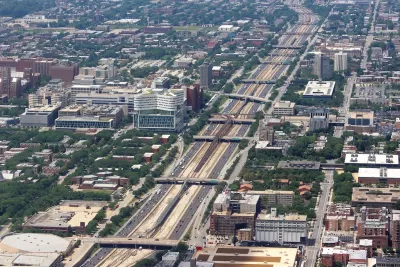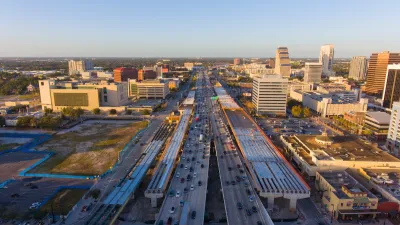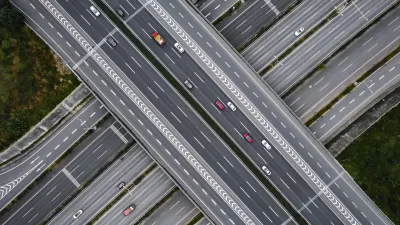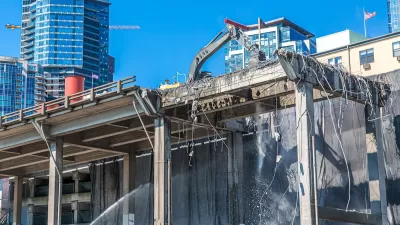Community advocates say the city’s plan may not do enough to reverse the negative impacts of a major expressway.

The City of Chicago announced it received a $2 million federal Reconnecting Communities grant aimed at improving “community safety, cohesion, and quality of life through enhanced connectivity over and around the [Eisenhower Expressway],” according to a press release from the city.
In an article for Streetsblog Chicago, John Greenfield describes the city’s plans for the Interstate 290 corridor, which are light on details but include “improvements for people walking and bicycling on existing streets and paths surrounding and crossing the corridor, adding or enhancing pedestrian bridges and bicycle facilities.”
In response, Kyle Lucas, cofounder of nonprofit Better Streets Chicago, said the grant is a positive step. “However, this fails to address IDOT’s plans to widen I-290 further. $2 million for a few bike lanes, pedestrian bump outs, and bushes on top of yet another multi-billion-dollar highway expansion project will do little to address either the historical nor ongoing harms that highways impose.” Lucas adds, “Our leaders must get serious about investing in expanding and modernizing transit – like extending the Blue Line – instead of doubling down on the planning mistakes of the '50s.”
FULL STORY: City announces $2M federal grant to address harms caused by I-290 by improving walk/bike/transit access

Study: Maui’s Plan to Convert Vacation Rentals to Long-Term Housing Could Cause Nearly $1 Billion Economic Loss
The plan would reduce visitor accommodation by 25,% resulting in 1,900 jobs lost.

North Texas Transit Leaders Tout Benefits of TOD for Growing Region
At a summit focused on transit-oriented development, policymakers discussed how North Texas’ expanded light rail system can serve as a tool for economic growth.

Why Should We Subsidize Public Transportation?
Many public transit agencies face financial stress due to rising costs, declining fare revenue, and declining subsidies. Transit advocates must provide a strong business case for increasing public transit funding.

How to Make US Trains Faster
Changes to boarding platforms and a switch to electric trains could improve U.S. passenger rail service without the added cost of high-speed rail.

Columbia’s Revitalized ‘Loop’ Is a Hub for Local Entrepreneurs
A focus on small businesses is helping a commercial corridor in Columbia, Missouri thrive.

Invasive Insect Threatens Minnesota’s Ash Forests
The Emerald Ash Borer is a rapidly spreading invasive pest threatening Minnesota’s ash trees, and homeowners are encouraged to plant diverse replacement species, avoid moving ash firewood, and monitor for signs of infestation.
Urban Design for Planners 1: Software Tools
This six-course series explores essential urban design concepts using open source software and equips planners with the tools they need to participate fully in the urban design process.
Planning for Universal Design
Learn the tools for implementing Universal Design in planning regulations.
City of Santa Clarita
Ascent Environmental
Institute for Housing and Urban Development Studies (IHS)
City of Grandview
Harvard GSD Executive Education
Toledo-Lucas County Plan Commissions
Salt Lake City
NYU Wagner Graduate School of Public Service





























